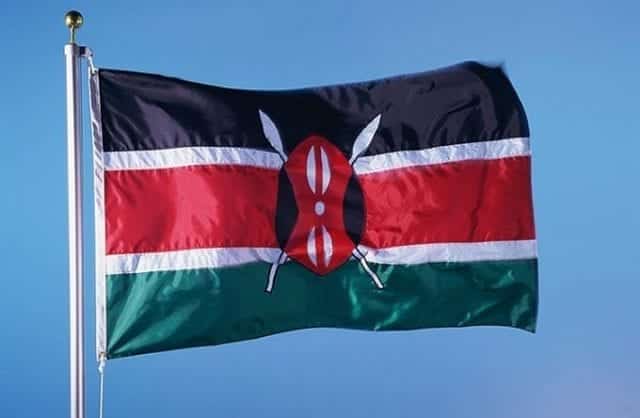
Cpl. Cecil Otieno always wanted to be a military officer, but growing up in Kenya, he faced many challenges.
“Back at home I was thinking of joining the military and my aim was to become an officer,” said Otieno. “But at home I couldn’t join the military because it was too corrupt, and only certain tribes could join.”
After arriving in America in 2010, Otieno decided to pursue his dream of becoming a military officer and joined the Marine Corps.
“When I went to see a recruiter they told me, ‘No you can’t, because you’re not a citizen’ and that’s why I decided to go Reserve, get my citizenship, get a four-year degree and then be able to live my dream of leading Marines.”
Life in Kenya
Otieno grew up in Nakuru, Kenya, the fourth largest urban area in the country.
“We didn’t have most of the things I have right now,” he said. “Getting food … getting basic needs … was tough. There were days me and my family had to go without food.”
Despite the challenges they faced, his family insisted Otieno and his three brothers went to school.
“Accessing school was hard because it all depended on your family income,” he said. “We lived miles away from school so if my dad couldn’t afford the bus fare, we had to walk far to school. It was tough.”
In order to get to school on time, Otieno had to start his two-hour walk at 5:00 a.m., every morning.
“After school at 5:00 p.m., we would start walking back and make it home around 7:00 p.m. and then we had to cook, fetch water and clean our school uniform,” he said. “We only had one uniform so we had to clean it for the next day of school.”
Otieno would attempt to study after doing his chores.
“We didn’t have electricity so we used a kerosene lantern, if there was no kerosene that day, there would be no studying.”
Otieno graduated high school in 2005, and went to college in Kenya in 2007 where he met his future wife. After graduating the three-year school, he got a job working for the United Nations environmental program and obtained his green card.
One step closer
After getting his green card, 23-year-old Otieno decided to move to America where he hoped to create a better life for himself and his family in Kenya.
“Considering where I came from, I thought if I work hard enough I will be able to change our situation back home,” he said.
During his search for a job, a friend told him about the Marine Corps and Otieno liked the idea.
“I wanted the challenge and also wanted the brotherhood,” he said. “The fact that I was able to get my papers and be able to bring my family to America was a great push too.”
While in boot camp, Otieno received some wonderful news; he had a son. He graduated as a Marine April 1, 2011.
Achieving goals and setting new ones
Otieno began the process of becoming a U.S. citizen shortly after graduating boot camp.
Special provisions of the Immigration and Nationality Act authorize U.S. Citizenship and Immigration Services to expedite the application and naturalization process for current members of the U.S. armed forces. Otieno became a U.S. citizen, Jan. 23, 2012.
After receiving his citizenship, he went back to Kenya to marry his wife and meet his son. He spent two weeks with his son and has not able to spend any time with him since, but his wife moved to America to be with him in August 2013. Otieno’s son is currently living with his grandmother, Otieno’s mom, in Kenya. Otieno and his wife are anxious to reunite with their son in July or August this year once the paperwork is complete.
Last summer, Otieno completed the first phase of Platoon Leaders Class. The PLC is just one of the paths that can lead to commissioning as an officer in the Marine Corps. For college freshmen and sophomores, PLC normally consists of two, six-week training sessions taken between school years.
Once commissioned, Otieno hopes to become a signal intelligence officer because it closely relates to his major and what he studied in Kenya.
“A week ago the 4th Marine Logistics Group commanding general asked me, ‘What do you want to do when you become an officer?’ and I told him signal intelligence. He told me, ‘Wrong. You want to become a Marine Corps officer.”
Cpl. Otieno is currently serving on active-duty operational support orders as a supply clerk for 4th Dental Battalion, 4th Marine Logistics Group, in Georgia; he also maintains a full-time student schedule.
He is attending Kennesaw State University and working toward his bachelor’s degree in geographical information. He will attend the second phase of PLC in July this year, and plans to commission in May 2015 after he receives his degree.
-marforres.marines.mil







